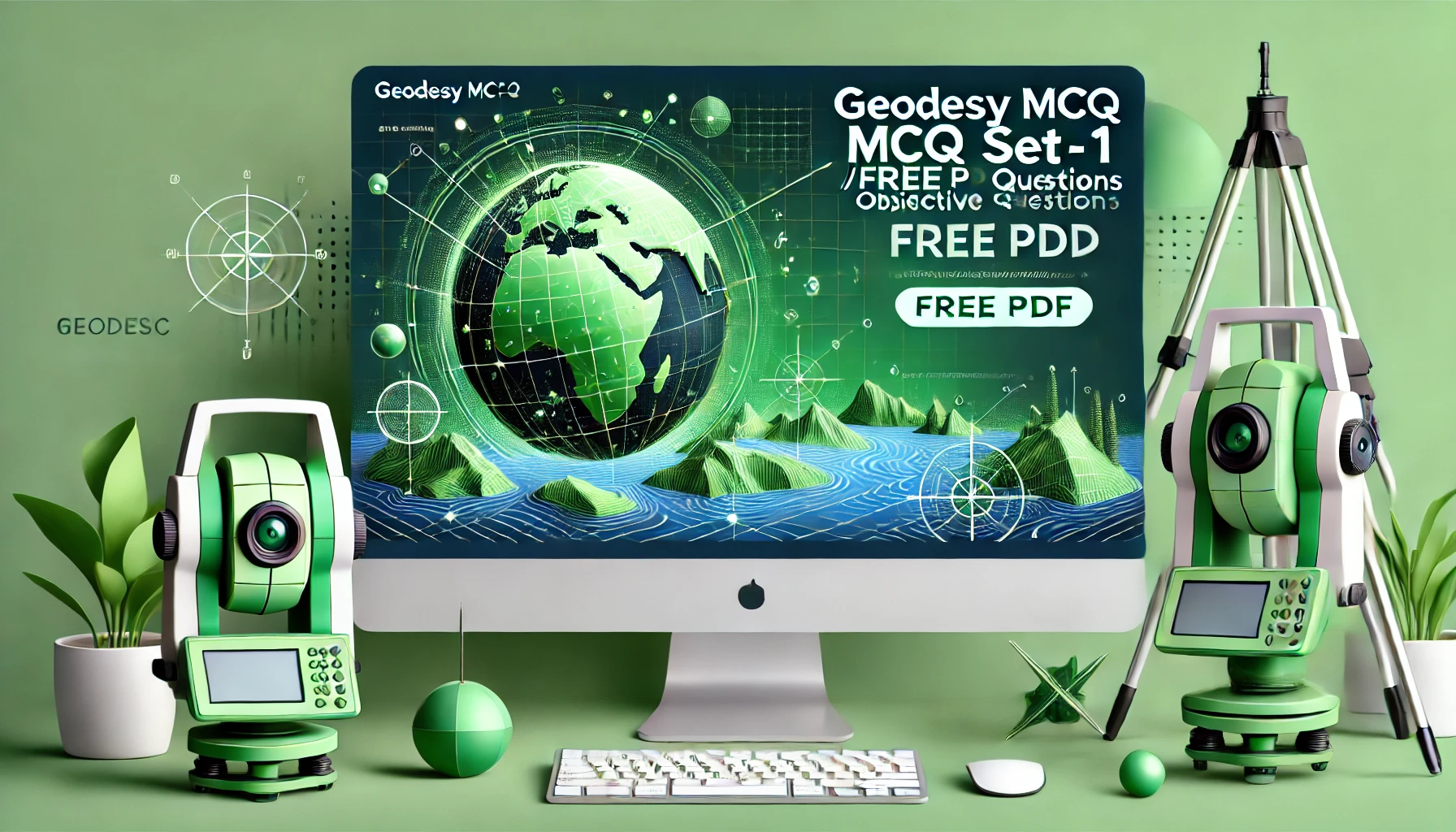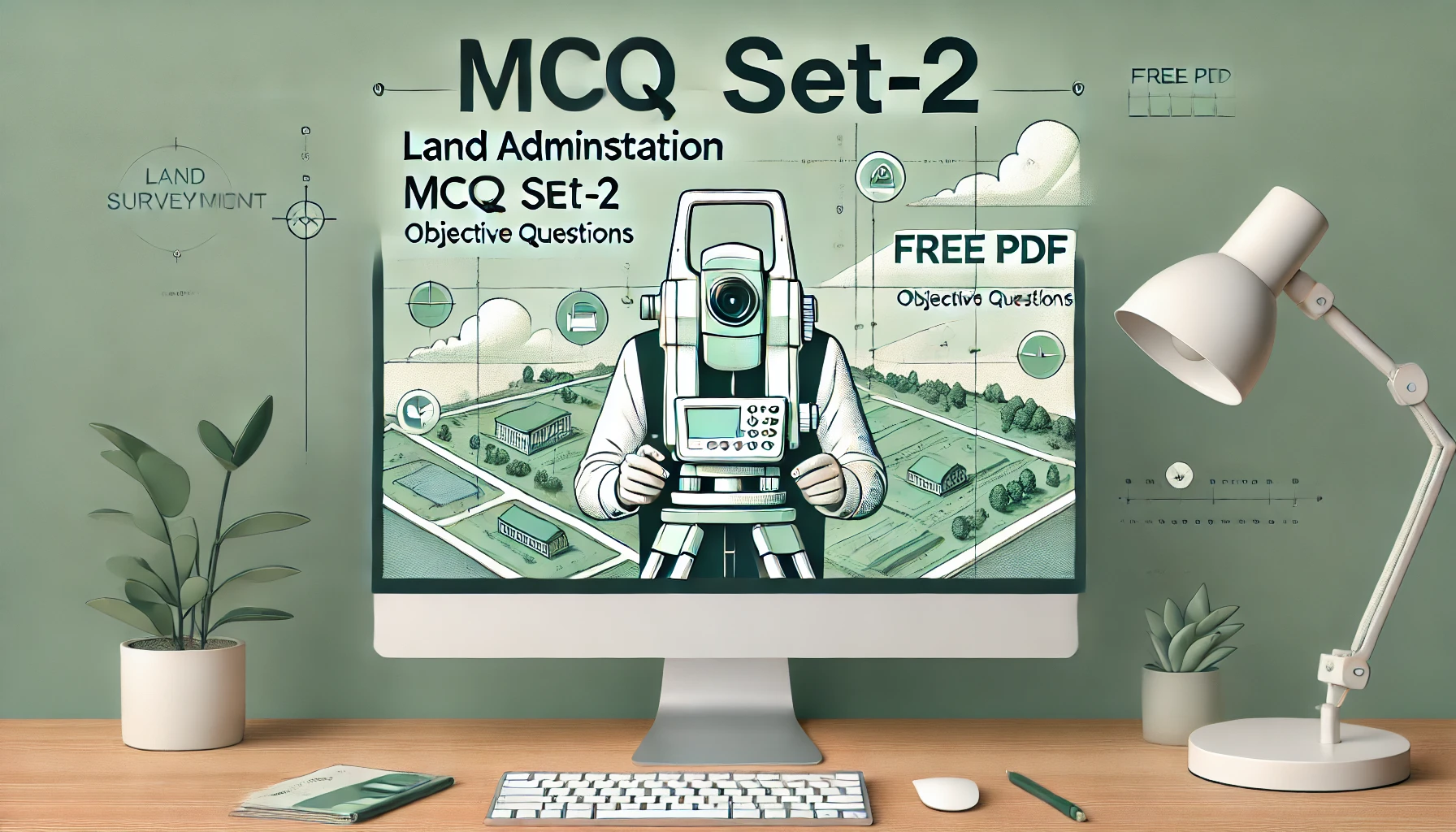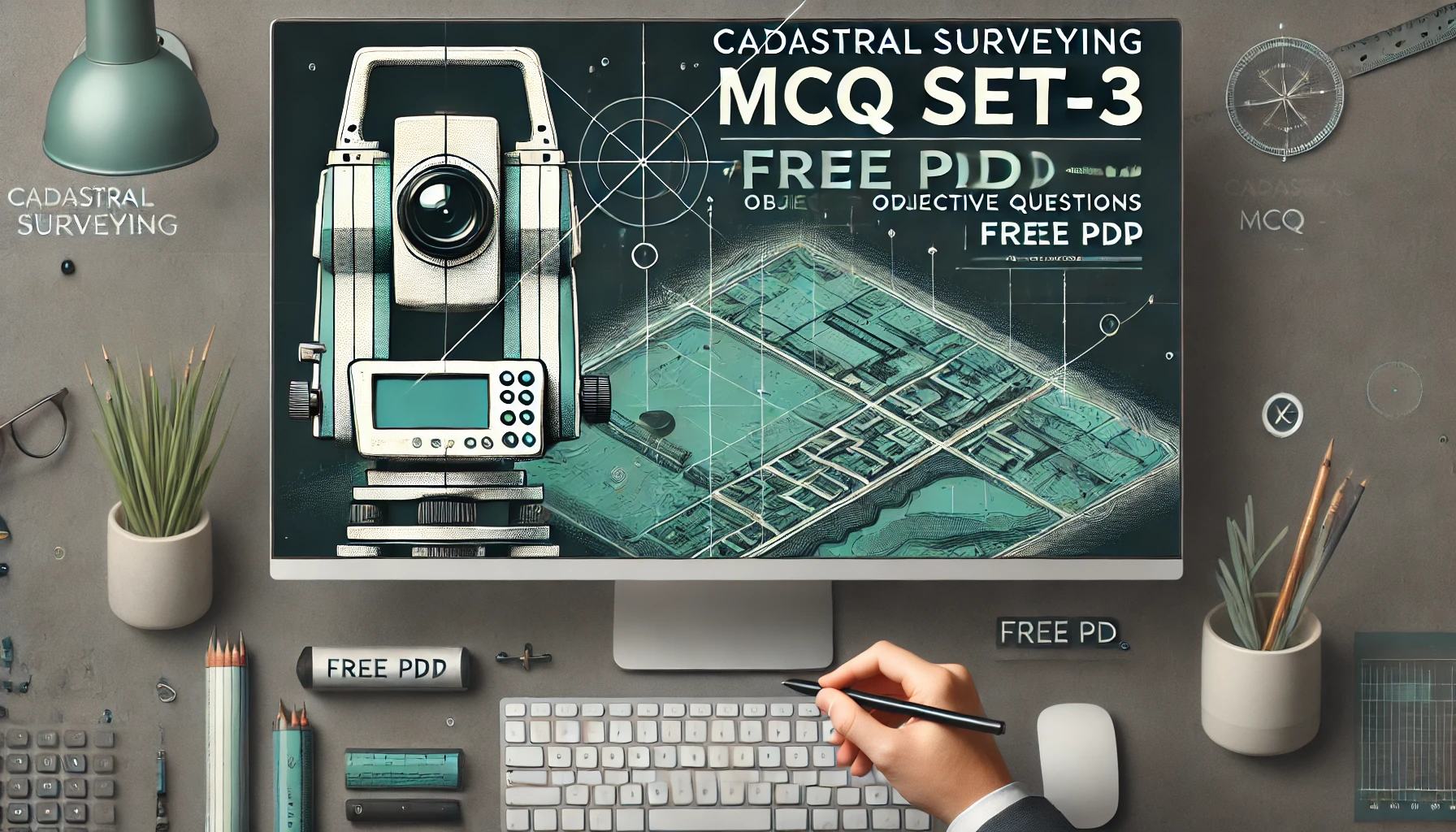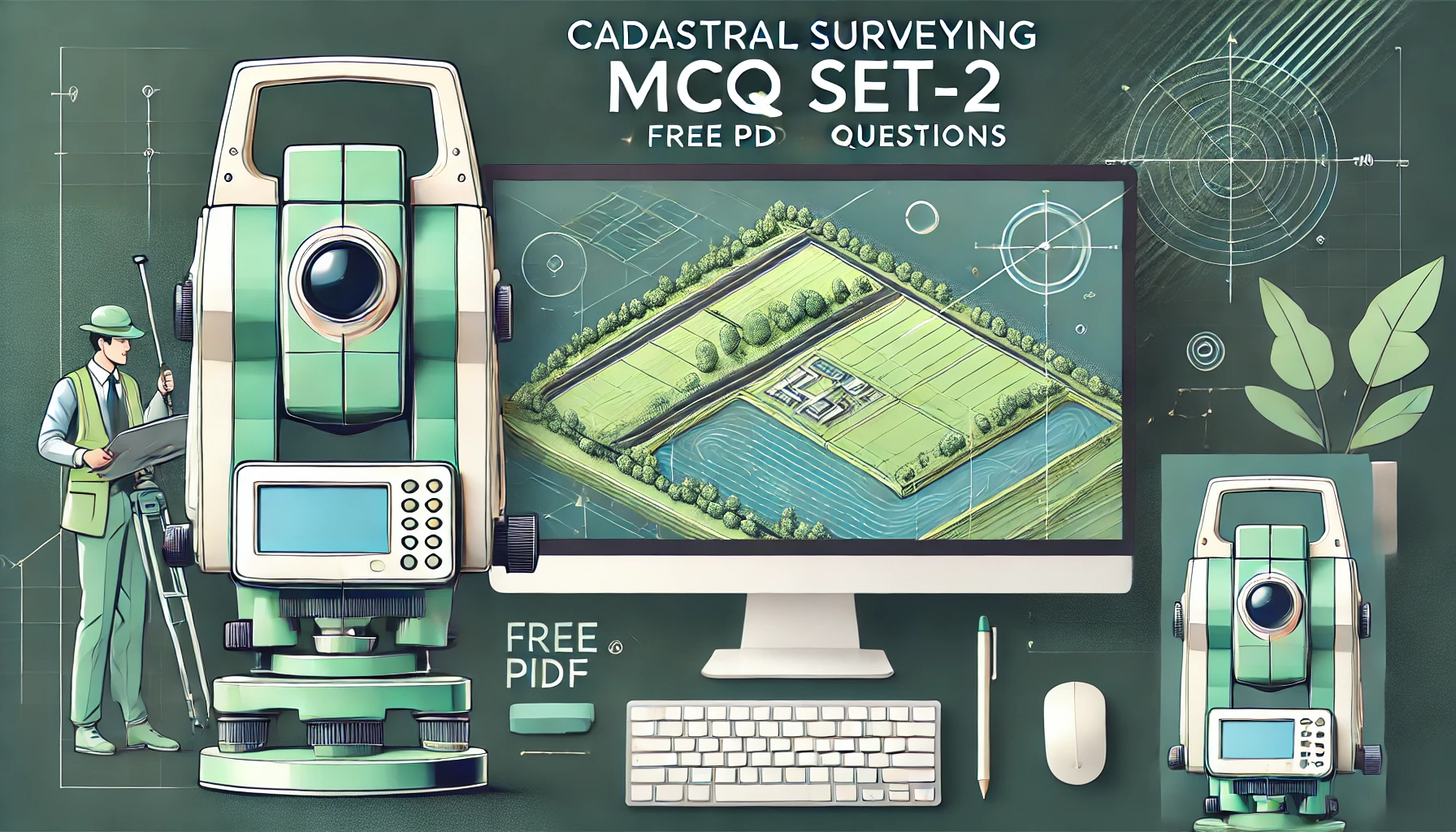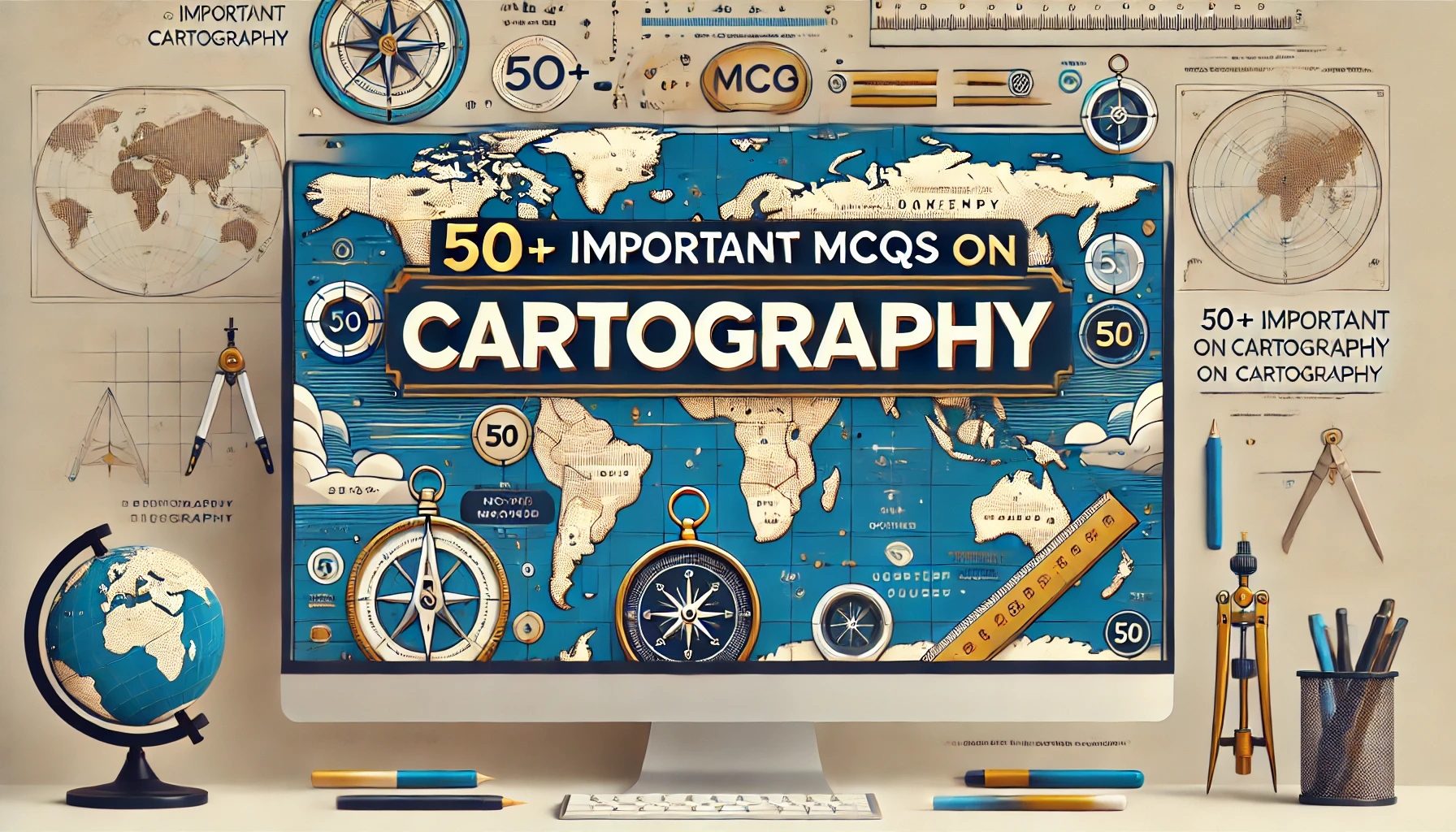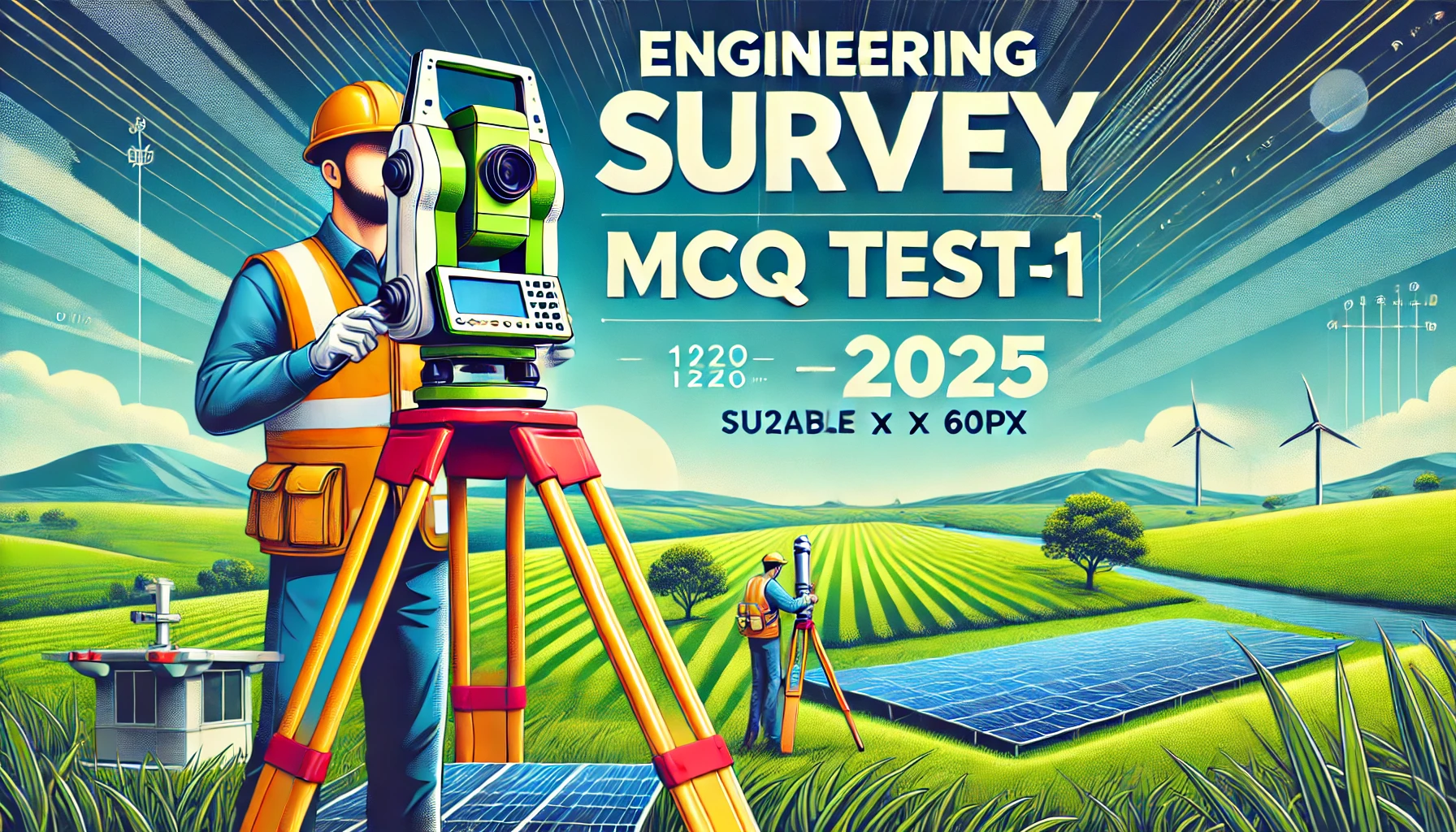Geodesy MCQ Set-1 [Free PDF] Objective Questions
50+ MCQs on Geodesy In this blog, we’ve curated 50+ thought-provoking multiple-choice questions covering the fundamental and advanced concepts of geodesy. ‘Geodesy MCQ Set-1 [Free PDF] Objective Questions’ is designed to help you refresh your basics, challenge your knowledge, and gain practical insights into the science of Earth’s shape, size, and gravitational field. Whether you’re a geodesy enthusiast, a GIS student, or a professional in the field, this quiz is the perfect way to enhance your expertise and understanding of geodetic principles. Let’s dive into the ‘Geodesy MCQ Set-1 [Free PDF] Objective Questions’ and start exploring! 1. What does GDBMS stand for in the context of data management? A. General Database Management System B. Geographic Data Backup Management System C. Geographic Database Management System D. Global Data Base Management System Answer C. Geographic Database Management System 2. What type of survey was conducted by the Survey Department in collaboration with the National Space Institute of Denmark? A. Ground-based Gravity Survey B. Satellite Gravity Survey C. Hydrographic Survey D. Airborne Gravity Survey Answer D. Airborne Gravity Survey 3. What is the purpose of the GPS Control Point Network established in Nepal? A. To monitor weather patterns across the country B. To provide internet connectivity in remote areas C. To enhance tourism by mapping historical sites D. To provide precise coordinates for mapping Answer D. To provide precise coordinates for mapping 4. Which method is used for leveling in the Levelling Section? A. Differential Levelling Method B. Barometric Levelling Method C. Spirit Levelling Method D. GPS Levelling Method Answer C. Spirit Levelling Method 5. What is the primary purpose of the Geodetic Survey Branch? A. To conduct environmental impact assessments for land use B. To manage land ownership disputes and cadastral mapping C. To conduct systematic mapping and establish control points D. To provide training and education in surveying techniques Answer C. To conduct systematic mapping and establish control points 6. Which branch was established for controlled cadastral mapping? A. Cadastral Survey Branch B. Topographical Survey Branch C. Trigonometrical Survey Branch D. Geodetic Survey Branch Answer C. Trigonometrical Survey Branch 7. What technology is used for the re-observation of First Order Points? A. GPS B. Doppler Positioning technique C. Traditional methods (Triangulation, Traverse, Trilateration) D. GDBMS (data entry into digital form) Answer A. GPS 8. What year was the Survey Department established in Nepal? A. 1957 AD B. 1950 AD C. 1955 AD D. 1960 AD Answer A. 1957 AD 9. What does the Gravity Section aim to determine regarding the value of acceleration due to gravity (g)? A. To determine variations in acceleration due to gravity (g) B. To measure temperature variations across regions C. To determine geological composition of the crust D. To assess gravity’s impact on local wildlife Answer A. To determine variations in acceleration due to gravity (g) 10. What is the role of the Doppler Positioning technique in mapping? A. To convert analog data into digital format for mapping purposes B. To establish a network of control points for triangulation C. To enhance the accuracy of positioning data D. To assist in the re-observation of existing mapping points Answer C. To enhance the accuracy of positioning data 11. What is the role of Nagarkot Observatory in geodetic research activities? A. It serves as a tourist attraction for astronomical observations B. It provides educational programs for local schools about astronomy C. It focuses solely on meteorological data collection and analysis D. It collects and processes GPS data for geodetic research Answer D. It collects and processes GPS data for geodetic research See Also: Land Administration MCQ Set-2 [Free PDF] Objective Questions 12. What activities are included in the establishment and maintenance of the level network along national highways? A. Establishment and maintenance of Bench Marks B. Maintenance of GPS tracking stations and revenue generation from processed data C. Regular observation for research activities on archaeological sites and infrastructure D. Establishment of control points and data archiving for cadastral mapping Answer A. Establishment and maintenance of Bench Marks 13. What is the main focus of the Astronomical Survey Section at Nagarkot? A. Determining the position of stars using telescopes B. Geodetic research and data acquisition C. Revenue generation through GPS data processing D. Establishing a reference station for GPS users Answer B. Geodetic research and data acquisition 14. What equipment was used during the Airborne Gravity Survey? A. Beechcraft 200 B. LaCoste & Romberg gravimeter S-38 C. Bell 206 helicopter D. Cessna 172 aircraft Answer A. Beechcraft 200 15. What is the significance of the Bench Mark (BM) at Birgunj in Nepal? A. The BM at Birgunj is a fundamental point for leveling in Nepal. B. The BM at Birgunj is utilized for urban planning and development projects. C. The BM at Birgunj is primarily used for geological surveys in Nepal. D. The BM at Birgunj serves as a reference for agricultural land measurements. Answer A. The BM at Birgunj is a fundamental point for leveling in Nepal. 16. What is the relationship between the undulated terrain of Nepal and the variations in gravity measurements? A. The terrain has no effect on gravity measurements. B. Gravity measurements are uniform across all regions of Nepal. C. Variations in gravity are solely due to atmospheric conditions. D. The undulated terrain causes variations in gravity measurements. Answer D. The undulated terrain causes variations in gravity measurements. See Also: Land Administration MCQ Set-1 [Free PDF] Objective Questions 17.What is the reference spheroid used in Nepal’s geodetic system? A. WGS 84 (World Geodetic System 1984) B. GRS 80 (Geodetic Reference System 1980) C. Clarke 1866 (an older reference spheroid) D. Everest (1830) Answer D. Everest (1830) 18. What is the expected outcome of determining the geoid model for Nepal? A. Improved mapping of geological features in Nepal B. Enhanced prediction of weather patterns in the region C. Development of new transportation routes based on gravity data D. Improved accuracy in height measurements Answer D. Improved accuracy in height measurements 19. How many satellites are currently in operation within the GPS constellation? A. 20 satellites B. 25 satellites C. 24 satellites D. 30 satellites Answer C. 24 satellites 20. What is the primary function of the Global Positioning System (GPS)? A. To determine precise positions B. To track wildlife migration patterns C. To facilitate communication between devices D. To provide weather forecasts and updates Answer A. To determine precise positions 21. What is the primary purpose of using carrier phase observations in GPS? A. To achieve high precision in relative positioning B. To reduce the time required for GPS signal acquisition … Read more
